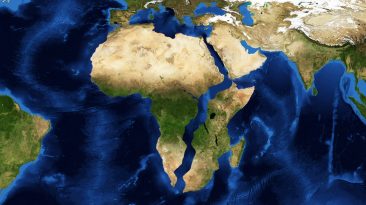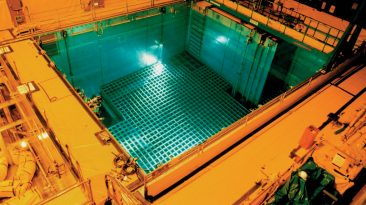An asteroid races towards Earth. In 6 months, the world as we know it will be obliterated.
What do you do? Is there time to evacuate? What would it take? And where would we go?
The evacuation of 7.7 billion people in 6 months would be a real miracle. To put it into perspective, the largest evacuation in U.S. history happened in 2005, when 2.5 million people fled Houston, Texas trying to escape Hurricane Rita.
The resulting traffic jam stretched for hundreds of miles, confining some families to their cars for as long as 24 hours. But this time, we’re talking about an evacuation that’s 3,080 times that, and one that involves space travel.
Oh my god, we’re doomed. We would need at least 750 million rockets to get every human off the planet safely.
And that’s only just enough for people, and the clothes on their backs. This number of rockets excludes equipment, oxygen, food, and… toilet paper.
But if you could solve the ship shortage, how would you solve the fuel shortage? To send just 65 kilograms (143 pounds) of anything into space requires the same amount of fuel that the average American household consumes in 2 months.
Now consider that the combined weight of the entire human race is about 400 million tons, meaning we would use up all of Earth’s fuel just getting everyone to safety… and that’s when the critical power failure would kick in.
In a best case scenario, we could deploy the world’s entire nuclear arsenal shortly after take-off, and let the blast propel us into space. And in true human fashion, we’d destroy the Earth ourselves before any asteroid could reach it.
What if, somehow, we make it off the planet with enough resources to build a new life. Where to?
Using the Kepler space telescope, scientists have identified 50 planets that can sustain human life. The question remains whether humans are even fit to survive in space for an extended period of time.
NASA’s recent Twins Study revealed that astronaut Scott Kelly, who spent 344 days orbiting Earth on the International Space Station, underwent genetic mutations and experienced a decline in cognitive ability compared to his twin brother, Mark, who remained on Earth.
But with scientists and entrepreneurs alike looking into how to colonize Mars or the Moon, maybe we’ll find a way to make life on one of those two rocks possible. If neither of those options is feasible, we’d probably end up living on giant versions of the International Space Station, but considering the astronomical costs, not to mention the technology and resources required to make it sustainable, that option’s not feasible either.
Truth be told, for any of this to be possible, we’d need at least a thousand more years to perfect the technology. And who says humanity will even last that long? There are a lot of brilliant people on this planet, but can we truly out-wit Mother Earth?
Subscribe to What-If on Youtube or follow the show on Facebook Watch.
Sources
- “WHAT IF WE HAD TO GET OUT OF HERE?”. Project, View. 2017. BHP Teacher Blog. Accessed May 1 2019.
- “Everybody Out”. 2019. what-if.xkcd.com. Accessed May 1 2019.
- “Nuclear Pulse Propulsion”. 2019. large.stanford.edu. Accessed May 1 2019.
- “How Easy Will It Be To Build A Moon Base?”. Nelson, Sue. 2019. bbc.com. Accessed May 1 2019.
- “Elon Musk Says Spacex Is On Track To Launch People To Mars Within 6 Years — Here’s The Full Timeline Of His Plans To Populate The Red Planet”. Mosher, Dave, 2019. Business Insider. Accessed May 1 2019.
- “The Future Of Space Colonization – Terraforming Or Space Habitats?”. 2019. phys.org. Accessed May 1 2019.
- “Mars One Just Delayed Its (Highly Unlikely) Mars Mission — Again”. Grush, Loren, 2016. The Verge. Accessed May 1 2019.



























